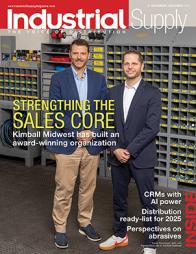You can't hope your problems away
by Timothy Bednarz
 Managers are overwhelmed and burdened with many tasks and responsibilities in a constant quest to improve results. It is easy for managers to ignore the many challenges that confront them while hoping that issues will resolve themselves. However, rather than disappear, unmet challenges create a new set of problems that can represent a deepening morass from which managers must extricate themselves.
Managers are overwhelmed and burdened with many tasks and responsibilities in a constant quest to improve results. It is easy for managers to ignore the many challenges that confront them while hoping that issues will resolve themselves. However, rather than disappear, unmet challenges create a new set of problems that can represent a deepening morass from which managers must extricate themselves.
Problems and challenges are a regular and ongoing occurrence: some surface as daily tactical problems and issues, while others are more complex, time-consuming and strategic in nature. In all forms, problems can overwhelm the manager and sap their productivity.
Managers must create a systematic approach to problem solving to allow time for their regular duties and responsibilities. Without a detailed, time-focused approach that allows managers to break challenges down into more manageable components, they will quickly feel overwhelmed by the enormousness of the demands facing them.
The manager who hopes that problems will go away on their own will be faced with the following consequences:
Closely Controlled Information
The flow and control of critical information is a management issue. Many managers base their personal power on how they manage and control information made available to their people. Yet the free-flow of information to frontline employees is essential for success. Managers who attempt to micromanage their employees and limit the information fed to them, contribute to undermining the efficiency of the team.
Employees are hindered when they are not given the information they need to be competitive. Without the information and authority to make decisions on the spot, their efforts can be negatively impacted by delays. When decisions are pushed up the line for managers to make, bottlenecks are often created and critical decisions are not made in a timely manner; potential results include lost productivity or poor customer service. At a time when customers are increasingly demanding, this can be extremely problematic. Rather than make employees more effective by streamlining the process, managers often erect additional barriers that hinder performance.
Loss of Critical Skills
In response to slow economic conditions, many companies cut their discretionary spending and slash training budgets. Rather than focus on the development of skills that can have a direct bearing on the success of a company, many allow skills to become outmoded and ineffective during slow periods. Consequently, companies experience an additional decline in performance, which then necessitate further cuts.
Rather than focus on reducing training budgets, managers should seek to sharpen employee skills to achieve the same objectives. Studies have shown that a 2% increase in customer retention over the previous year's performance levels will result in a 10% reduction in operating expenses. This is due to the additional retained business impacts of economies of scale.
Disconnection Between Company and Customer Base
With the changes in purchasing habits of customers and a closer examination of the roles and returns that specific products or services offer managers, those who fail to meet critical challenges can find themselves increasingly disconnected from their customer base.
Employees who fail to understand their clients' profit economies and who are not attuned to the rapidly shifting complexion of business will find it increasingly difficult to meet their customers' needs. As companies neglect training, they rob their people of critical skills at the apex of change.
Inefficient Use of Resources
Not only are companies more demanding, but the use of various new methods and technologies have made for more diverse methods of collecting and disseminating information. The use of face-to-face meetings is in many circumstances no longer the most efficient use of resources. Phone and Web conferencing can supplement traditional meetings and free managers to pursue more essential activities.
Additionally, if managers fail to focus on the desired outcomes of their business processes and the behaviors required to achieve those goals, they are, once again, inefficiently using their resources. Failure to align desired behaviors and goals with compensation plans will result in a failure to meet objectives and negatively impact the organization.
Minimizing Profit Potential
The failure to meet new and ongoing challenges through heightened training can result in the minimization of profit potential. Employees who do not understand the profit economics of their products/services cannot comprehend how they might impact and improve the profitability of their own efforts.
Deterioration of Growth
Managers who neglect to deal with a new problem are either in denial of the situation or hope it will resolve itself. However, a failure to meet challenges will create a domino effect across the entire organization. All challenges are interconnected: each impacts the other. If solutions are not addressed in tandem, they risk failing. Consequently, when managers fail to meet the issues facing them head-on, they can easily undermine their unit and organization's growth. The hazard is always present, but the consequences manifest themselves in increments, and the impact is only truly felt over time.
Excerpt: Risk Management: Pinpoint Sales Management Skill Development Training Series (Majorium Business Press, Stevens Point, WI 2011) $ 18.95 USD











